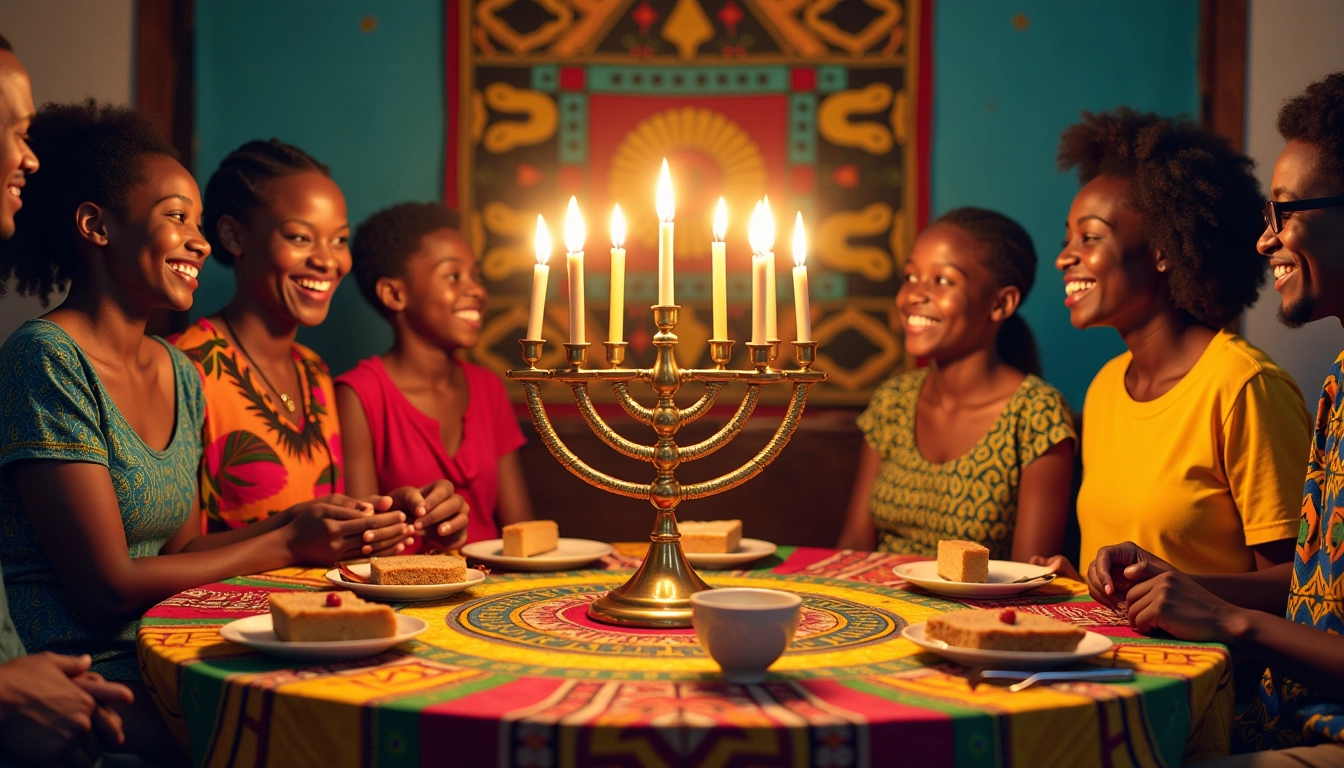As the winter chill begins to fade and the new year settles in, a vibrant celebration ignites across America and beyond. Kwanzaa, a week-long festival honoring African American culture and heritage, stands as a beacon of unity, reflection, and pride. Born from the tumultuous civil rights era, this holiday has grown to touch millions of lives, weaving together tradition, community, and hope. As we approach December 26, 2024, let’s unravel the rich tapestry of Kwanzaa and discover why it continues to resonate with people around the world.
The Birth of a Cultural Renaissance
In 1966, amid the embers of the Watts riots in Los Angeles, Dr. Maulana Karenga envisioned a celebration that would rekindle African American pride and unity. Like a phoenix rising from the ashes, Kwanzaa emerged as a powerful symbol of cultural rebirth. Dr. Karenga, reflecting on its creation, stated, “Kwanzaa was created to reaffirm and restore our rootedness in African culture and to serve as a regular communal celebration which reinforced the bonds between us as a people.”
Seven Days, Seven Principles: The Heart of Kwanzaa
At the core of Kwanzaa lie the Nguzo Saba, seven principles that serve as guideposts for a life of purpose and community. Each day of the celebration focuses on one of these principles:
- Umoja (Unity)
- Kujichagulia (Self-Determination)
- Ujima (Collective Work and Responsibility)
- Ujamaa (Cooperative Economics)
- Nia (Purpose)
- Kuumba (Creativity)
- Imani (Faith)
These principles, like the roots of a mighty baobab tree, anchor the celebration and nourish the spirit of those who embrace them.
A Feast for the Senses: Kwanzaa Celebrations
Kwanzaa is a symphony of sights, sounds, and flavors that engage all the senses. Homes and community centers burst with vibrant decorations, including the kinara (candleholder), mkeka (straw mat), and kikanba cha umoja (unity cup). The air fills with the rhythmic beats of African drums and the aroma of traditional dishes. As one celebrant shared, “Kwanzaa isn’t just a holiday; it’s a full sensory experience that connects us to our roots and each other.”
The Karamu: A Feast of Unity
On December 31st, the Karamu Ya Imani (Feast of Faith) takes center stage. This joyous gathering is more than just a meal; it’s a celebration of community, creativity, and cultural pride. Tables groan under the weight of traditional African and African American dishes, from jollof rice to black-eyed peas. As families and friends come together, stories are shared, and bonds are strengthened, embodying the spirit of Umoja (unity) that is central to Kwanzaa.
Kwanzaa Around the Globe: A Growing Tradition
While Kwanzaa has its roots in African American culture, its message of unity and cultural pride has resonated far beyond U.S. borders. The celebration has found a home in countries like Canada, Jamaica, and Brazil, where it is recognized as an official holiday. This global embrace of Kwanzaa speaks to its universal themes of community and heritage, much like how International Day of Happiness celebrates the universal pursuit of well-being.
The Power of Symbols: Kwanzaa’s Visual Language
Kwanzaa’s rich symbolism serves as a visual storytelling of African heritage and values. Each element has deep significance:
- Kinara: The candleholder representing African ancestors
- Mishumaa Saba: Seven candles symbolizing the Nguzo Saba
- Kikombe cha Umoja: The unity cup used for pouring libations
- Mazao: Crops symbolizing African harvest celebrations
These symbols, like the intricate patterns of kente cloth, weave together to create a tapestry of meaning and memory.
Kwanzaa in the Modern Era: Adaptation and Growth
As Kwanzaa approaches its 60th anniversary, it continues to evolve and adapt to changing times. Social media has become a powerful tool for sharing Kwanzaa traditions and connecting celebrants across the globe. Virtual Kwanzaa events have emerged, allowing for wider participation and cultural exchange. This digital expansion mirrors the way International Women’s Day has leveraged technology to amplify its message of gender equality.
The Economic Impact: Supporting Black-Owned Businesses
Kwanzaa’s principle of Ujamaa (Cooperative Economics) has inspired a movement to support Black-owned businesses during the holiday season and beyond. Many celebrants make a conscious effort to purchase Kwanzaa decorations, gifts, and feast ingredients from Black entrepreneurs. This economic solidarity is like a river, nourishing the communities it flows through and fostering economic empowerment.
Kwanzaa and Education: Passing the Torch
Schools and community organizations play a crucial role in educating younger generations about Kwanzaa and its significance. Many institutions organize Kwanzaa workshops, storytelling sessions, and cultural performances. As one educator noted, “Teaching children about Kwanzaa is like planting seeds of cultural pride that will grow and flourish throughout their lives.”
Challenges and Controversies: Navigating Kwanzaa’s Path
Like any cultural celebration, Kwanzaa has faced its share of challenges and critiques. Some have questioned its authenticity as an African tradition, while others debate its relevance in modern times. However, supporters argue that Kwanzaa’s strength lies in its ability to adapt and resonate with contemporary African American experiences. These discussions, while sometimes heated, serve to deepen understanding and engagement with the holiday’s core principles.
Looking Ahead: The Future of Kwanzaa
As we look towards Kwanzaa 2024 and beyond, the celebration continues to evolve while staying true to its roots. New traditions are emerging, blending ancient African customs with contemporary African American experiences. The holiday’s emphasis on community, cultural pride, and self-reflection resonates with a new generation seeking connection and purpose in an increasingly complex world.
Kwanzaa stands as a testament to the resilience and creativity of the African American spirit. It is a time for reflection, celebration, and recommitment to the values that strengthen communities and individuals alike. As the candles of the kinara are lit each evening, they illuminate not just homes, but the enduring legacy of African heritage and the bright promise of the future. In embracing Kwanzaa, we are reminded of the power of culture to unite, inspire, and transform.
